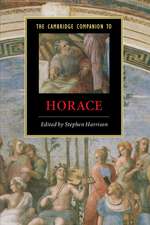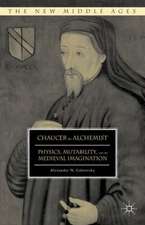Contested Language in Malory's Morte Darthur: The Politics of Romance in Fifteenth-Century England: Arthurian and Courtly Cultures
Autor R. Lextonen Limba Engleză Hardback – 18 iun 2014
| Toate formatele și edițiile | Preț | Express |
|---|---|---|
| Paperback (1) | 384.86 lei 6-8 săpt. | |
| Palgrave Macmillan US – 18 iun 2014 | 384.86 lei 6-8 săpt. | |
| Hardback (1) | 388.13 lei 6-8 săpt. | |
| Palgrave Macmillan US – 18 iun 2014 | 388.13 lei 6-8 săpt. |
Din seria Arthurian and Courtly Cultures
- 15%
 Preț: 638.24 lei
Preț: 638.24 lei -
 Preț: 387.75 lei
Preț: 387.75 lei -
 Preț: 385.62 lei
Preț: 385.62 lei - 15%
 Preț: 581.98 lei
Preț: 581.98 lei -
 Preț: 392.60 lei
Preț: 392.60 lei - 18%
 Preț: 774.66 lei
Preț: 774.66 lei - 15%
 Preț: 640.06 lei
Preț: 640.06 lei -
 Preț: 386.99 lei
Preț: 386.99 lei - 15%
 Preț: 640.88 lei
Preț: 640.88 lei -
 Preț: 384.86 lei
Preț: 384.86 lei - 15%
 Preț: 645.28 lei
Preț: 645.28 lei - 15%
 Preț: 640.24 lei
Preț: 640.24 lei -
 Preț: 389.31 lei
Preț: 389.31 lei -
 Preț: 388.72 lei
Preț: 388.72 lei -
 Preț: 388.34 lei
Preț: 388.34 lei -
 Preț: 388.13 lei
Preț: 388.13 lei -
 Preț: 385.47 lei
Preț: 385.47 lei -
 Preț: 390.63 lei
Preț: 390.63 lei
Preț: 388.13 lei
Nou
Puncte Express: 582
Preț estimativ în valută:
74.28€ • 77.26$ • 61.32£
74.28€ • 77.26$ • 61.32£
Carte tipărită la comandă
Livrare economică 15-29 aprilie
Preluare comenzi: 021 569.72.76
Specificații
ISBN-13: 9781137364821
ISBN-10: 1137364823
Pagini: 248
Ilustrații: XII, 248 p.
Dimensiuni: 140 x 216 x 20 mm
Greutate: 0.42 kg
Ediția:2014
Editura: Palgrave Macmillan US
Colecția Palgrave Macmillan
Seria Arthurian and Courtly Cultures
Locul publicării:New York, United States
ISBN-10: 1137364823
Pagini: 248
Ilustrații: XII, 248 p.
Dimensiuni: 140 x 216 x 20 mm
Greutate: 0.42 kg
Ediția:2014
Editura: Palgrave Macmillan US
Colecția Palgrave Macmillan
Seria Arthurian and Courtly Cultures
Locul publicării:New York, United States
Cuprins
Introduction: Arthurian Romance and Political Language in Fifteenth Century England 1. Kingship, Justice and the 'comyns' in the Tale of King Arthur 2. Counsel and Rule in the Tale of King Arthur and Arthur and Lucius 3. Malory's Lancelot and the Politics of Worship 4. Courtesy in Malory's Tale of Sir Gareth 5. Fellowship and Treason Conclusion: Malory's Contested Language
Recenzii
"Rarely do we have a chance to view a late medieval or early renaissance text from a totally new perspective, but Lexton overthrows all of our nostalgic assumptions about what King Arthur and his roundtable must have meant to Malory's original audience. This book argues instead that Arthur (and through him, the reigning powers in England) are criticized. Key to this argument is Malory's use of loaded political language, terms such as justice, 'comyns,' counsel, rule, worship, courtesy, fellowship, and treason. This carefully argued and nuanced study of language provides happy proof that new and important work is still possible in much-studied texts." - Kathryn Hume, Edwin Erle Sparks Professor of English, The Pennsylvania State University, USA
"Indispensable for Arthurian scholars, Contested Language in Malory's Morte Darthur argues that Malory's use of specific political language highlights the trouble with the system of governance in the Morte - especially at the level of the king. Lexton crafts this argument with keen attention to the political and social environment surrounding the writing and reading of the text. The deft comparison of Malory's language to the words and ideas in political and personal documents from the period helps elucidate Malory's accomplishments and possible goals in his version of the Arthurian story." - Molly Martin, Associate Professor of English and Foreign Languages, McNeese State University, USA
"Contested Language in Malory's Morte Darthur uses an impressive mastery of fifteenth-century texts to make the bold argument that Le Morte Darthur treats Arthur not as an ideal king but as a model of political failure. Exquisitely sensitive to language, this book tracks key terms through texts ranging from law books to letters, from disquisitions on kingship to the managing of servants. The result goes beyond a reading of Malory to be an insightful analysis of fifteenth-century political discourses." - Kenneth Hodges,Associate Professor of English, University of Oklahoma, USA
"Indispensable for Arthurian scholars, Contested Language in Malory's Morte Darthur argues that Malory's use of specific political language highlights the trouble with the system of governance in the Morte - especially at the level of the king. Lexton crafts this argument with keen attention to the political and social environment surrounding the writing and reading of the text. The deft comparison of Malory's language to the words and ideas in political and personal documents from the period helps elucidate Malory's accomplishments and possible goals in his version of the Arthurian story." - Molly Martin, Associate Professor of English and Foreign Languages, McNeese State University, USA
"Contested Language in Malory's Morte Darthur uses an impressive mastery of fifteenth-century texts to make the bold argument that Le Morte Darthur treats Arthur not as an ideal king but as a model of political failure. Exquisitely sensitive to language, this book tracks key terms through texts ranging from law books to letters, from disquisitions on kingship to the managing of servants. The result goes beyond a reading of Malory to be an insightful analysis of fifteenth-century political discourses." - Kenneth Hodges,Associate Professor of English, University of Oklahoma, USA
Notă biografică
Ruth Lexton is a Visiting Assistant Professor at Bates College, USA.
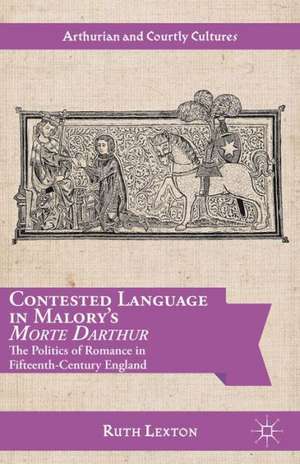



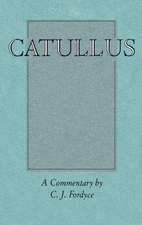
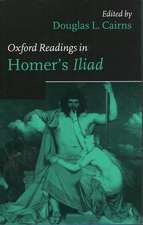




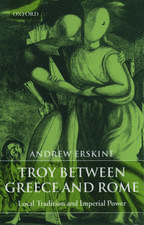
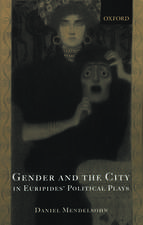
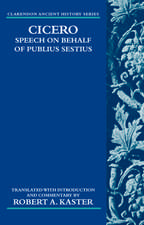
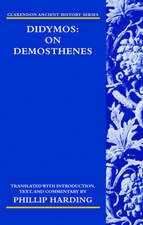

![The [European] Other in Medieval Arabic Literature and Culture: Ninth-Twelfth Century AD](https://i0.books-express.ro/bt/9780230109407/the-european-other-in-medieval-arabic-literature-and-culture.jpg)

